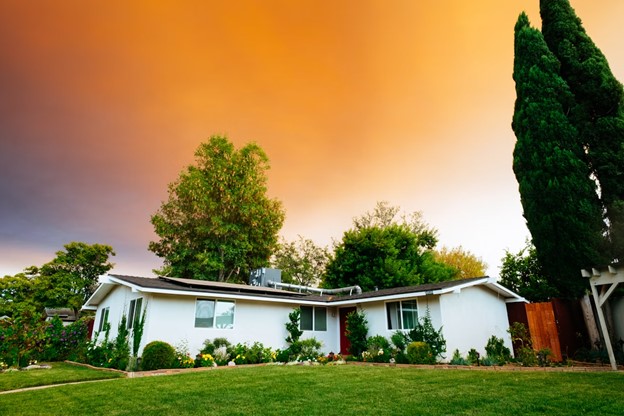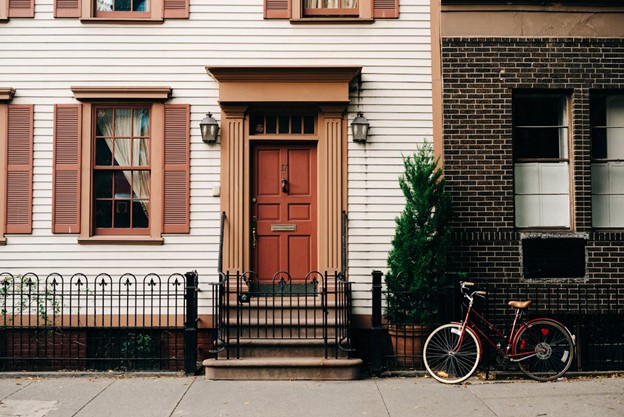My blog focuses on Financial Literacy/Money. Purchasing, maintaining and parting ways with your primary residence is one of the most critical aspects of your personal finances. As a part of this, you must understand foreclosure and how it works. The following contributed post is entitled, Real Estate 101: What Is Foreclosure & How Can Your Home Be Foreclosed?
* * *

Today’s topic is all about real estate and one of the key terms within this space. As the title hints, we’re talking about foreclosure and what this means for your home. You might’ve heard people talk about homes being foreclosed, yet you’re unsure about the technical aspects of it. This guide will explain everything – starting with a definition.
Defining Foreclosure
Foreclosure is when your property is seized by an outside party, usually because you failed to adhere to the terms of an agreement with said party. If your home is foreclosed, it means you no longer have legal ownership of it. This passes to whoever seized it as part of the legal foreclosure process.
Needless to say, this is every property owner’s nightmare. You spend most of your life saving to buy a home and then put so much money and effort into making it a place you love dearly. The last thing anyone wants is for their home to be taken from them – but how is this allowed to happen?
Main Reasons Your Home Is Foreclosed
Before you start panicking and thinking that someone can foreclose your home on a whim, it’s important to note that this only happens in two different scenarios:
● You owe money to a lender, and they seize your house to repay your loan
● You live in an HOA and violate the HOA rules

Why Lenders Can Foreclose Your Home
Most home foreclosures relate to mortgage loans and missed payments. It’s virtually impossible to buy your first home without taking out a mortgage. This is a massive loan that covers the costs of purchasing the property, but you have to repay it with interest over many years.
The average mortgage payment per month is anywhere between $1,242 to $7,046, depending on where you live and how much your home is worth. That’s a lot of money, which means it’s unsurprising to see some homeowners struggle to maintain these payments. If you miss a few months and can’t keep up with repayments, then the mortgage lender is well within their rights to foreclose your home.
It’s written in the terms and conditions of your loan. Your home is, effectively, collateral for the lender – it’s their safety net; it prevents them from losing hundreds of thousands of dollars if you can’t pay them back. Therefore, you should always do everything in your power to repay your mortgage or talk to your lender if you foresee some financial trouble. Some mortgage lenders are friendly and will work with you to restructure your debt – it’s always worth trying.
Why An HOA Can Foreclose Your Home
An HOA (Home Owner’s Association) is a group that’s responsible for looking after and managing multiple properties. This could mean an entire neighborhood is under an HOA, and you might buy one of these properties. People do this because HOAs tend to be safe and give you nice communities to live in with lots of amenities.
However, there’s a strong push to abolish HOA properties because these organizations hold too much power. When you join an HOA, you agree to a long set of rules and conditions. This includes paying yearly HOA fees, abiding by community guidelines, and so on. Written in the small print of your agreement is the HOA’s power to foreclose any homes that violate those rules.
It sounds crazy, but there have been instances of someone missing a few hundred dollars in HOA payments and having the threat of foreclosure loom over their heads. The craziest thing about this is that there’s nothing you can legally do to stop them. You signed a contract and bought an HOA property, so you have to deal with the repercussions.
How To Avoid Foreclosing Your Property
Isn’t it obvious? Make sure you have a good mortgage repayment plan in place, and be sure to keep saving money in case you need it. Don’t take out any other loans with your house as collateral – this increases your financial obligations to multiple creditors and boosts the chances of your home being foreclosed because you can’t maintain repayments.
Similarly, it’s also helpful if you don’t buy an HOA. They might come with some nice benefits, but the fact someone has such power over your home is borderline criminal. You bought the house; an HOA should not be able to foreclose it because you did something mundane like violate the community rules a couple of times.
In summary, foreclosure is bad and will make your life hell, but it’s not something you have to deal with. Careful financial planning will prevent this issue and give you nothing to worry about.
